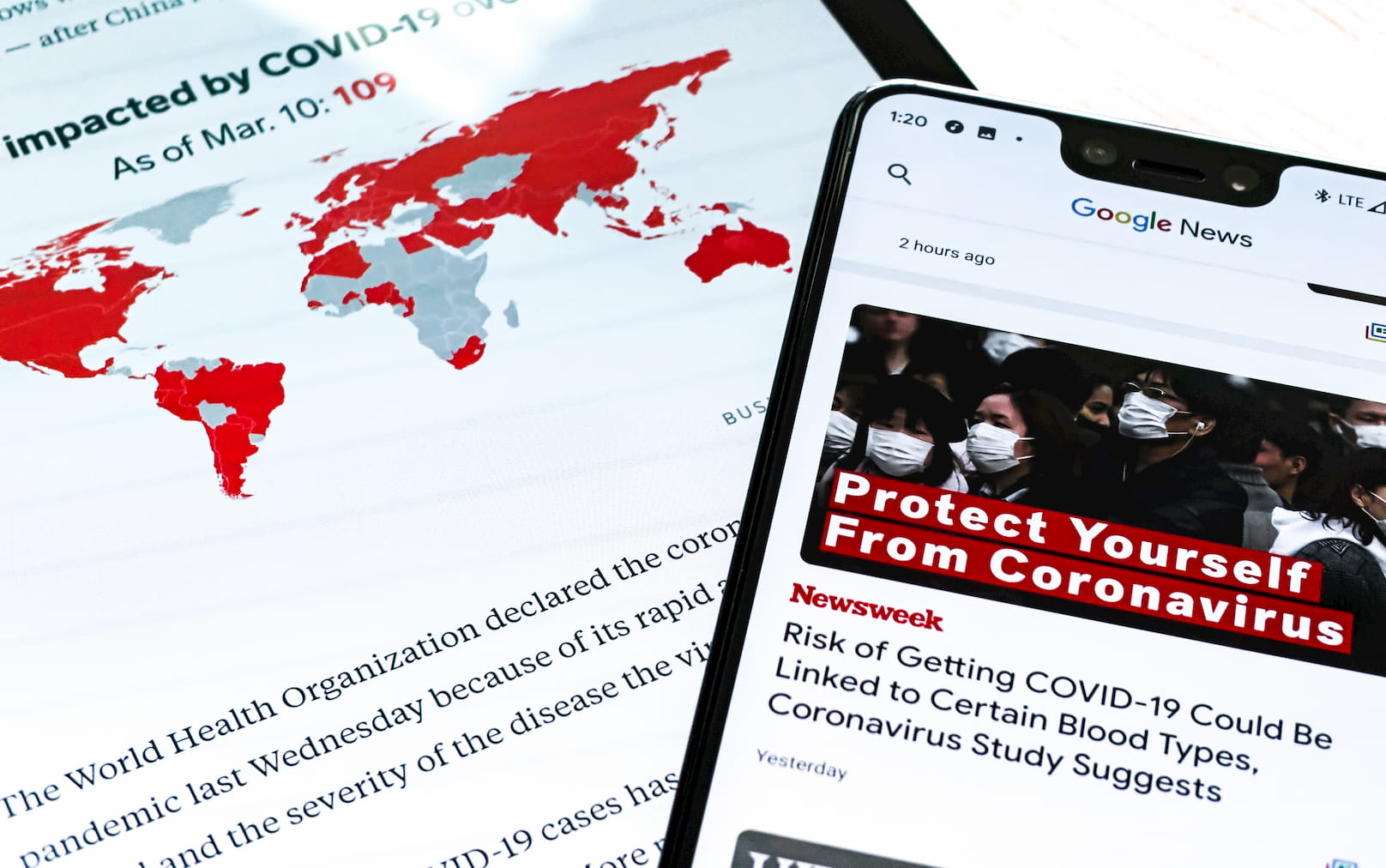One day, your brand will face a PR crisis. Whether it’s a human error, financial turmoil, or something as unexpected as a pandemic (hello, COVID-19!) – a crisis is bound to happen to organizations of all types and sizes. How your brand communicates during and after a crisis will determine if your reputation will stand the test of time. In this article, we’ll help you proactively prepare for a crisis, give you tips on how to manage one, and the steps you should take post-crisis.
We spoke to Hugo Stienstra, , Global Spokesperson/Reputation Manager at paints and coatings company AkzoNobel for some guidance on how to navigate a crisis.
Jump to:
What is PR crisis management?
PR crisis management is the process of handling and mitigating the negative impact of an unexpected event that may harm an organization’s reputation. PR pros play a crucial role in managing crises, as they are the ones that lead an organization by reducing the damage caused and work towards restoring trust among stakeholders. As opposed to regular communications, crisis communications is something that your brand responds to. You have no control over the narrative or timing of your communication. Therefore, the way you respond to a crisis will determine if and how your reputation will survive.
Pre-crisis
One of the most essential elements in crisis communications, if not the most crucial, is timing. When a crisis hits, you need to act quickly. A crisis operates around the clock – rest assured it won’t wait for business hours. You should be ready to respond to a crisis immediately. What will you say? Who will say it? Which channels will you use? These questions (and more) should be answered in a crisis communications playbook that you prepare well in advance. Here are other tips you should keep in mind:
Train yourself and your staff
Think of training as stage rehearsals for a play - a well-practiced theatre group is much more likely to nail their performance when the curtain rises. Conduct role plays, develop clear company protocol, and write thorough briefing books. Remember, failing to prepare is preparing to fail.
“It’s important to train for crisis situations. Think of issues that might happen. Everyone who will be involved should do trainings: so that if a real crisis comes, it’s not the first time you’ve thought the response and the way of working through. You don’t want to have to think on the spot."
Hugo Stienstra, Global Spokesperson for AkzoNobel

Do research and anticipate crisis
By understanding the challenges your industry (and the world) is facing, you can form a pretty good idea of what issues are likely to crop up. You will need to keep your ear to the ground. Listen to consumers, keep up with the news, read about the competition; all these activities are worth your time.
“Some crises can be foreseen because they are existing issues in society. So you need to know the topics in popular culture that people have emotions about, what their tone of voice is, and see if they are related to your business or not,” Hugo explains. “Alongside social media, you can sense what is happening in the world through media releases, by seeing what does or doesn't get picked up. Several tools can help you listen to what is said about your company and brands and what the tone of voice and the share of voice is.”
Prepare for different scenarios
When preparing for a crisis, Hugo advises making a long list of all the possible scenarios that may arise in the future. Think the unthinkable and how you will respond to that situation. Here are a list of scenarios you should consider:
- Natural disasters: situations that could affect your business operations, harm employees, or impact your reputation.
- Workplace violence: When an employee or former employee instigates an act of violence on organization grounds.
- Rumors: When something is said in order to harm the organization that is not true. For example, a rumor started by a user, an employee, competitors or any accusations surrounding the CEO.
Challenges: For example, when a company faces a reaction from stakeholders accusing the organization of acting in an inappropriate manner.
Technical-error accidents: When technology fails to operate and causes an incident. For example, if your app/site is down.
Human-error accidents: When an employee commits an error that results in harm or defect. For example, a data breach.
Looking to create your very own crisis communications playbook? We’ve got you covered. Our Crisis Communications Course offers a template to help you get started. Start your free trial today.
During Crisis
Respond quickly
If your company finds itself in a crisis, act quickly- it is one of the key things that will regain trust with the public. Crisis breeds an especially critical audience, so it is best to take every opportunity to redeem yourself. “Always try to be in the lead of communication. It's best to proactively communicate yourself, instead of others communicating for you because you were silent or too late,” Hugo explains.
In times of crisis, communication is key.
In times of crisis, communication is key. We can help you keep your audiences informed at all times. Here's how.
Tap into your network
During crisis moments, you will feel the benefits of the relationships you have with the media very keenly, as you will have allies. “Your relationship with a journalist is key in moments of crisis. If the journalist knows you they will give you more time to provide an answer to something, instead of just publishing immediately,” Hugo says.
Acknowledge uncertainty or fear
The very nature of crises is often uncertain. It may seem counterintuitive, but expressing the unknown will boost your authority. It’s fine not to know everything, just as long as you take action in the areas you do know.
Communicate the facts
Only tell people what you truly know at that moment, not what you think you know. A crisis is not a time for speculation or assumptions, nor is it a time for dishonesty. Good reputations are built upon truthfulness, so stick to the facts.
Explain that there is a process in place
To truly show that you have understood a crisis, you will have to present the plan you have made to overcome it. Everyone makes mistakes. But showing that you are learning from those mistakes, staying humble, and expressing wishes for the future, is how you make up for it.
Follow your protocol or briefing books
It may be tempting to stray the course when a chorus of voices enter a situation, but plans are put in place for a reason. You and your team will have spent a long time thinking about possible scenarios and their best responses, so trust in your work and follow your plan.
Feel the room
That being said, if you anticipated speaking to a particular audience and you are instead faced with an entirely different one, it is wise to adapt your plan to new realities. Bringing a bouncy castle to a gathering of people with pitchforks is not a sensible idea. Exercise some common sense.
Post-crisis
Once a crisis has blown over, you’ll have some room to fix pending issues. There will likely be less drama, anger or pressure, but how you handle a crisis once it’s over is crucial. Based on your response to the initial crisis may give rise to new turmoil. Post-crisis communication is important because you need to regain the trust that stakeholders have lost in the business.
Monitor your messages
During a crisis, you’ll be actively monitoring the statements you’ve released to measure your audience’s reactions and if they are having the effect you intended. Once the crisis has passed, you should analyze if any new issues are popping up or if the main crisis is still being discussed.
Follow up on issues
If your audience or the media asks you questions you are not able to answer during the crisis, make sure you follow up as soon as you have the information. Being reliable and punctual shows respect, which is the foundation of a good reputation.
Apply learnings
No matter how well you plan, there will always be situations you couldn’t have dreamed up. Make sure every mistake is a learning experience and you update your protocol. Only then will your communication strategy will be the best around.
A crucial element during and after a crisis is transparency. It can help you build trust among the stakeholders that matter most to you. One way to do so is by providing information that can be easily found. In your newsroom, for example. Here's how we can help you do just that.
Carmen Guillen is Content Team Lead at OLIVER Agency. With over 7 years of experience as a copywriter and editor, Carmen has written for high-profile blogs and newspapers, and directed the content teams for fast-growing startups and NGOs, including PR.co’s blog and Unfold Magazine. Carmen is passionate about ethical business and artful storytelling.. Connect on LinkedIn or send an email







